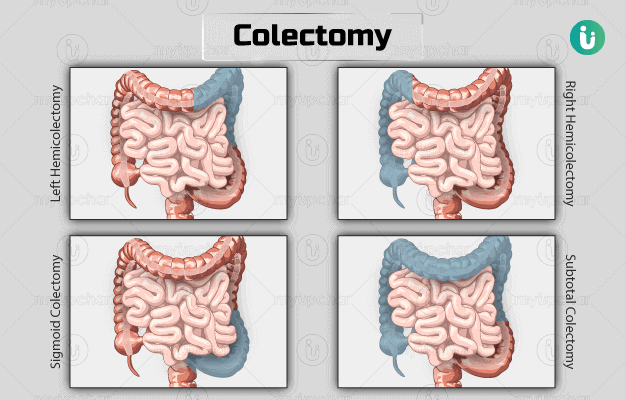Summary
The surgical removal of colon or bowel or large intestine is known as a colectomy. This procedure is generally used to treat colon diseases, such as colon cancer, ulcerative colitis or Crohn’s disease.
Colectomy can be performed by open or laparoscopic methods. Sometimes, additional procedures like colostomy or ileostomy may be required. The common symptoms of bowel cancer include abdominal pain or cramping, change in bowel habits, bleeding and weight loss. The type of surgery depends on the stage of cancer, which requires proper screening before deciding the treatment plan. The procedure aims to relieve symptoms and remove the cancerous part of the colon.










































